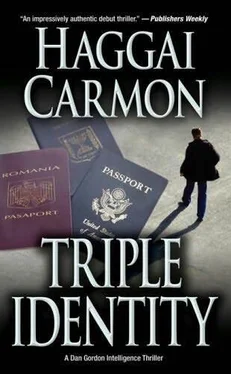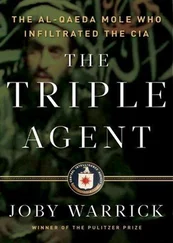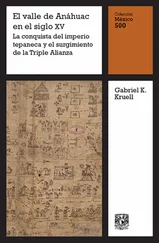Haggai Carmon - Triple Identity
Здесь есть возможность читать онлайн «Haggai Carmon - Triple Identity» весь текст электронной книги совершенно бесплатно (целиком полную версию без сокращений). В некоторых случаях можно слушать аудио, скачать через торрент в формате fb2 и присутствует краткое содержание. Жанр: Триллер, на английском языке. Описание произведения, (предисловие) а так же отзывы посетителей доступны на портале библиотеки ЛибКат.
- Название:Triple Identity
- Автор:
- Жанр:
- Год:неизвестен
- ISBN:нет данных
- Рейтинг книги:4 / 5. Голосов: 1
-
Избранное:Добавить в избранное
- Отзывы:
-
Ваша оценка:
- 80
- 1
- 2
- 3
- 4
- 5
Triple Identity: краткое содержание, описание и аннотация
Предлагаем к чтению аннотацию, описание, краткое содержание или предисловие (зависит от того, что написал сам автор книги «Triple Identity»). Если вы не нашли необходимую информацию о книге — напишите в комментариях, мы постараемся отыскать её.
Triple Identity — читать онлайн бесплатно полную книгу (весь текст) целиком
Ниже представлен текст книги, разбитый по страницам. Система сохранения места последней прочитанной страницы, позволяет с удобством читать онлайн бесплатно книгу «Triple Identity», без необходимости каждый раз заново искать на чём Вы остановились. Поставьте закладку, и сможете в любой момент перейти на страницу, на которой закончили чтение.
Интервал:
Закладка:
Haggai Carmon
Triple Identity
One afternoon in 1993, in a windowless conference room in Washington, D.C., a tall visitor opened a powerful laptop and turned it to face a closed session of an interagency committee of senior investigative agents and lawyers from a dozen government offices. Everyone sitting in that room investigated major multinational crimes or managed other substantial international cases on behalf of the United States. All of us were concerned with recovering profits of crime or to win redress for victims of civil wrongs. Our successes, whether generally unknown or splashed across the media, were matters of public record. We of course relied for them on an array of law enforcement investigative tools and governmental mechanisms for international cooperation. But as he clicked on screen after screen Haggai Carmon, an international lawyer in private practice, surprised those of us meeting him for the first time with true tales of how, as a consultant to the U. S. government, his independent approaches had ferreted out millions in U.S. crime profits that perpetrators had cached abroad. In this work Haggai had also gathered legal intelligence in more than thirty countries that proved to be at least significant and sometimes crucial to civil and criminal cases, money laundering cases in particular, involving the U.S. government. The methods Haggai outlined were original, effective, and unusually swift. Some made creative use of that slim computer of his. All were perfectly legal. Whether retained to work in tandem with government investigators or operating independently for the government, Haggai had in numerous major cases been responsible not only for tracking down ill-gotten assets abroad but for facilitating their return to the United States. Nearly a decade later, Haggai surprised me again. By then I'd retired from my Department of Justice job as general counsel for the INTERPOL-U.S. National Central Bureau, slipping gratefully off to a quieter life. But Haggai had another true tale, and he tracked me down to tell it. During sleepless, jet-lagged nights in remote hotels, he'd pounded out an international legal/spy thriller based on his years as a money hunter in more than thirty countries. Would I look at Triple Identity 's discussions of INTERPOL to see that they were authentic? I agreed to check relevant sections. When the bulky manuscript arrived, however, I glanced at its first page, the first sentence – and read straight through to the very last word. Parts of the book sprang, it was obvious, from pure imagination. Triple Identity 's David Stone, mythical head of a nonexistent U.S. Department of Justice office, has “an ample budget.” This does not happen. Given their heavy and ever-increasing caseloads, no government international office I've known, regardless of country, has had a budget that its agents or lawyers would call “ample.” Nice thought! But it's fiction. Nor would any government lawyer resort to a certain few of the ploys used by unbureaucratic Dan Gordon, the book's dual-nationality Department of Justice lawyer and a veteran of the Mossad. No government lawyer who tried them could keep job, law license, or, in the worst case, liberty. You'll spot these certain ploys. They're clever. They're highly entertaining. They're even plausible. In real life, though, they don't happen. But what about that twisting plot, those interlaced subplots, incident after curious incident? What about much more than ninety million dollars spirited from a California bank? What about the fugitive banker, real identity as elusive as he, who spirited these millions away? What of that multinational cast of bad, good, and in-between guys crisscrossing Europe and the Middle East, double-crossing one another, intent on seizing the money, stalking the man, securing materials to manufacture weapons of mass destruction? Did these spring from Haggai's cases? From cases that others handled? From Haggai's innovative and inventive mind? Haggai says that they're fiction. He certainly should know. So, fiction they are. But as far as my experience goes, they nonetheless ring true. I'd say that they could have happened.
The white, masklike face wore an inquisitive expression, as if, when final darkness came, Raymond DeLouise had asked, “What happened?” then, “Who are you?” and finally, “I should have…”The entry wound on his forehead was barely noticeable but for the round gunpowder-burn marks from a close-range shot.
I identified him by comparing the passport picture I held of Raymond DeLouise with the corpse's face. I'd found the man I was looking for.
“That's what killed him,” said the man in the white gown and clear plastic gloves, pointing at the tiny wound. I wanted to leave. The metallic click of refrigerated drawers and the cold glare of fluorescent lights sent chills down my spine. I was also uncomfortable with the harsh-sounding German words that, though attempting to be courteous, sounded almost sadistically gleeful. Duty or not, feeling sick to my stomach was not in my job description.
It wasn't the corpse. I had seen many before, including the poor souls I personally sent to their just rewards. But back then it was during battle, when it's your life or theirs, or – during discretionary warfare, sometimes also called “black operations,” in which there are no rules, no records, no attribution – when it was only their lives.
What nauseated me was the smell of formaldehyde mixed with cleansing detergents: the stench of death. The odor seeps under doors, along hallways; it sticks to your clothes, infiltrates your nostrils, convulses your stomach.
This was my first visit to a morgue, and its deep-chill atmosphere put death in a different perspective. DeLouise was not my enemy, only my target, and we were not at war. At least I thought so then.
In a hurry I left the morgue, located in the Munich City Hospital on Ismaninger Street, trying to mask my revulsion, and stepped out into the crisp October day. There were some leaves on the tall trees; autumn was still very much in the air. I looked at the clear sky, at the passing faceless people, at the cars, and took a deep breath. This case was certainly different from all the other cases I had investigated for the U.S. Department of Justice. This time an asset-recovery case involved more than money; it involved blood. Someone had killed DeLouise, execution style. It wasn't an accident. “He didn't die of measles,” as they say in the intelligence community. You just don't walk the streets of Munich and get shot in the head. It wasn't a stray bullet that killed him either; DeLouise was the target. Raymond DeLouise, or rather his assets, were also my target, and now he was dead. New rules had been written.
I went to the parking lot outside the morgue and headed for my car. It was a shiny blue BMW, rented for me by Helga from the legal attache's temporary office at the U.S. Consulate in Munich. I paused just as I was about to insert the key in the lock. I felt a sudden rush of adrenaline. I began to sweat even though the air was chilly. I needed to pull myself back to reality.
I stood for a moment, took a deep, long breath, and got into the car. I was being ridiculous. As a trained professional I knew that it took more than the twenty minutes I had spent in the morgue to booby trap a car parked in an open lot, in full view, without arousing suspicion. Besides, the assassin had to be a professional hitman, not a serial killer randomly selecting his next victim. The only people who knew about my pursuit of Raymond DeLouise and my efforts to seize his assets were the U.S. Department of Justice and the Mossad, Israel's foreign-intelligence service – my current and former employers, respectively. And neither eliminated people in the dirty-money business that way; they simply made the wrongdoers read their service and procedures manuals. That was ample punishment.
Читать дальшеИнтервал:
Закладка:
Похожие книги на «Triple Identity»
Представляем Вашему вниманию похожие книги на «Triple Identity» списком для выбора. Мы отобрали схожую по названию и смыслу литературу в надежде предоставить читателям больше вариантов отыскать новые, интересные, ещё непрочитанные произведения.
Обсуждение, отзывы о книге «Triple Identity» и просто собственные мнения читателей. Оставьте ваши комментарии, напишите, что Вы думаете о произведении, его смысле или главных героях. Укажите что конкретно понравилось, а что нет, и почему Вы так считаете.











